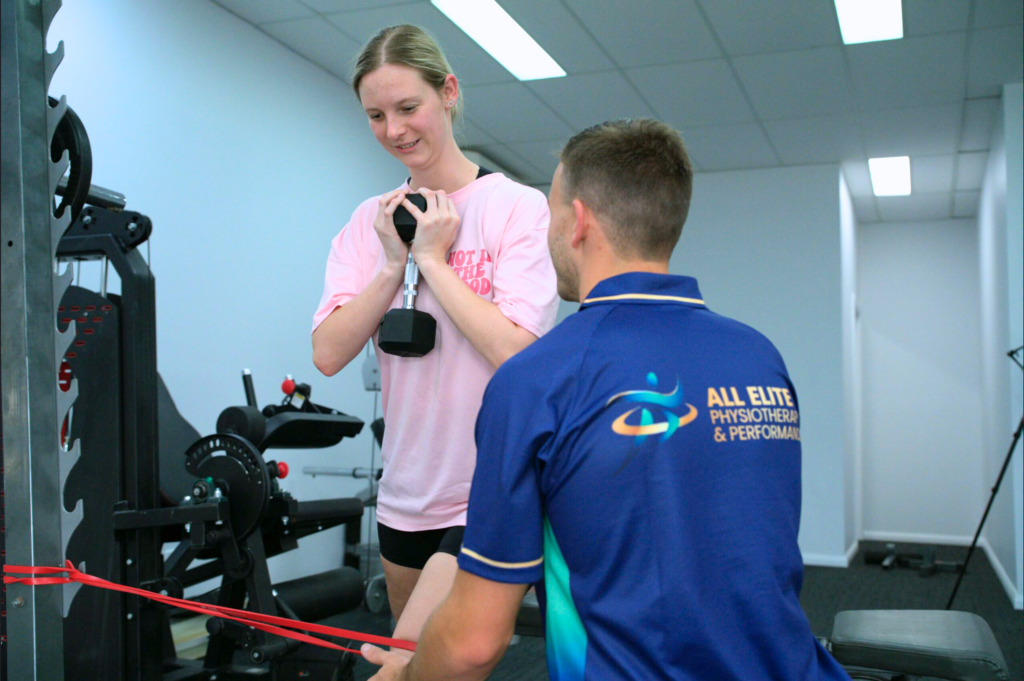How Physiotherapists Can Help With WorkCover Injuries
Have you been injured on the job? If so, you know all too well the difficulties that can arise from managing both your recovery and the complexities of worker's compensation claims. From organising medical appointments to understanding your rights under the WorkCover system, the process can be daunting, taking a toll on your physical health, mental well-being, and financial security.
This is where physiotherapists can step in to ease the burden.
Specialising in the rehabilitation of work-related injuries, physiotherapists develop tailored treatment plans that incorporate effective pain management, mobility restoration, and body-strengthening exercises to help get you back on your feet and back to work with confidence. A physiotherapist’s primary focus is guiding patients towards a safe and sustainable return to the workplace, ensuring they can perform their job effectively with the lowest possible risk of further injury.

What Are WorkCover Injuries?
WorkCover injuries are injuries that occur when someone is at work and are serious enough to lead to ongoing medical conditions or disabilities that require medical attention and rehabilitation. Usually resulting in time away from work, these injuries can be either physical or psychological. To qualify as WorkCover injuries under the WorkCover systems, these injuries must be directly linked to the employee's job duties and the work environment.
Understanding the WorkCover System
Taking shape in the early 20th century, the Australian WorkCover system is designed to support workers who suffer from workplace injuries and illnesses directly related to their job. The WorkCover system, also known as workers' compensation insurance, provides medical assistance and financial compensation to cover the costs of any required treatment, rehab services and lost wages. By offering the right support during the rehabilitation period, the system aims to facilitate a smooth and efficient return to work.
How Physiotherapists Help with WorkCover Injuries
While physiotherapy is commonly associated with athletes and sports injuries, its applications span various ailments, including work-related injuries.
The role of physiotherapy in injury rehabilitation has been widely researched and reported upon, with numerous studies confirming its effectiveness in enhancing recovery. Improving functional movement and reducing overall downtime for injured individuals. Expert physiotherapists typically start the process with a thorough assessment, which allows them to create a bespoke treatment plan that is tailored to the patient's specific needs.

Specific Treatment Approaches Used by Physiotherapists for Work-Related Injuries
Physiotherapists are health professionals who employ a variety of treatment approaches to address work-related injuries, including:
- Manual therapy, a hands-on technique, is used to massage, manipulate and mobilise tissues in the body to encourage movement and relieve pain.
- Exercise programs with specific exercises designed to enhance strength and mobility.
- Pain management strategies to help patients deal with pain and facilitate active rehabilitation.
- Education on ergonomics and proper body mechanics to mitigate future injury prevention.
WorkCover Benefits
If you have lodged a WorkCover claim, working with a physio has many benefits.
- Faster recovery: Speed up the process.
- Get back to work: Get back to your duties safely and confidently.
- Initial assessment and diagnosis: Physios can provide you with a clear diagnosis, thorough treatment plan, clear expectations and realistic timeframes around recovery.
- Customised treatment plans: Physio treatment plans don’t follow a one-size-fits-all approach to exercise physiology. Rather, you will receive an individualised recovery plan for your needs.
WorkCover Injuries Treated by Physios
Physiotherapy is a holistic modality that can provide relief and improvement from many conditions; however, some injuries are more common in WorkCover claims. According to recent ABS statistics, the most common injuries are sprains, strains and dislocations, which are often treated with exercise rehabilitation. Chronic joint or muscle conditions like knee, hip, back and ankle pain make up 20% of cases and often require physiotherapy.

WorkCover and Physiotherapy
Navigating your WorkCover claim and getting to see a physio can seem daunting when you’re under stress. But it’s quite straightforward once you know where to start.
- Report the injury: Tell your employer the details of your workplace injury as soon as possible. This needs to be done before any claims can be lodged.
- See a doctor: Visit a hospital or local doctor’s surgery to get a detailed medical report. This paperwork will be the basis of your WorkCover claim, so try to be as detailed as possible.
- Lodge a WorkCover Claim: Submit a WorkCover claim, either through your employer or directly to Worksafe. Your employer will have the forms and will also need to fill out their section of the claim form.
- Claim Accepted: Once your Worksafe claim is accepted, WorkCover will pay for all your injury-related medical care. Your doctor or physio will send an invoice to WorkSafe, and they will pay the invoice on your behalf.
- See your GP: Book a consultation with your GP, who can provide you with a referral for physio based on your WorkCover claim.
- Choose your Physio: WorkCover gives you the choice of provider. This means you can request to see the expert physiotherapists at All Elite Physio.
Attend all Appointments: To get the most out of your recovery and see quick results, it’s important to attend all scheduled appointments and follow the treatment plans provided by your treating team.
Early Intervention in WorkCover Injuries
The benefits of early intervention with physiotherapy treatment for WorkCover injuries are supported by strong evidence. Research shows it can improve recovery outcomes, reduce recovery time and prevent chronic conditions. A recent study found that an Early Intervention Physiotherapist Framework (EIPF) resulted in faster returns to work for injured workers compared to standard treatment. Statistically, early intervention can save costs by speeding up overall recovery and getting people back to work safely and quickly.

How Physios Get You Back to Work
Physios play a key role in getting you back to work gradually and safely after a work-related injury. By working with your case manager, employer and doctor, physios create a support network to enhance the rehabilitation process. This ensures all aspects of your health and workplace requirements are considered, so the transition back to work is as smooth as possible.
Try Physio for your WorkCover
The evidence is in. Seeing a physio after a workplace injury gets you back to work faster and reduces the risk of long-term disability and loss of function. Early intervention can make a big difference to your recovery journey and get you back to your daily routine with confidence.
At All Elite Physio, we provide full WorkCover services to aid your recovery and get you back to work quickly. Contact us today to find out how our physio's can tailor treatments to your needs and support you every step of the way.
